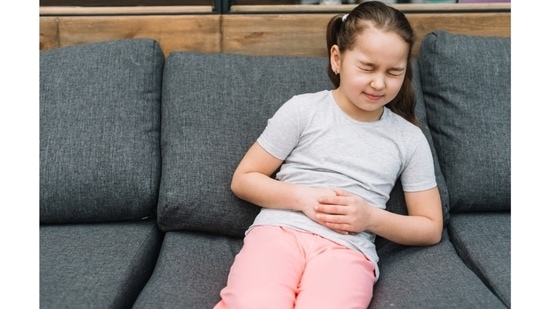
Preventing and managing diarrhoea: Essential steps for health and wellbeing of children
8 months ago | 79 Views
Diarrhoeal disease is the third leading cause of death in children under 5 years old and is responsible for killing around 443 832 children every year globally though it is preventable and treatable. Diarrhoea can last several days and can leave the body without the water and salts that are necessary for survival.
In India, childhood diarrhoeal diseases continue to be a major killer among under-five children in many states, contributing to 5.8 percent of under five deaths in the country (Cause of Death Statistics 2017-19, Sample Registration System of Registrar General of India). Around 50,000 children die due to diarrhoea annually in the country.
In an interview with HT Lifestyle, Dr Tanvi Chauhan, Manager – (Health and Nutrition) at Bal Raksha Bharat (Save the Children), shared, “Diarrhoeal deaths are usually clustered in summer and monsoon months and the worst affected are children from poor socio-economic situations.”
Understanding Diarrhoea
Dr Tanvi Chauhan said, “Diarrhoea is defined as the passage of 3 or more loose or liquid stools per day (or more frequent passage than is normal for the individual). Frequent passing of formed stools is not diarrhoea, nor is the passing of loose, pasty stools by breastfed babies. The various causes which leads to diarrhoea includes host of bacterial, viral and parasitic organisms, most of which are spread by faeces-contaminated water.”
She added, “Infection is more common when there is a shortage of adequate sanitation and hygiene and safe water for drinking, cooking and cleaning. Rotavirus and E. coli are the most common pathogens among children across all age groups. Another important underlying cause is malnutrition which makes children more vulnerable to diarrhoea. Other causes like food stored in unhygienic and unsafe domestic water storage and handling may also contribute to the disease.”
The Importance of Preventive Measures
The most severe threat posed by diarrhoea is dehydration. Dr Tanvi Chauhan explained, “During a diarrhoeal episode, water and electrolytes (sodium, chloride, potassium and bicarbonate) are lost through liquid stools, vomit, sweat, urine and breathing. Preventing diarrhoea helps in reducing the risk of dehydration.”
Steps to Prevent Diarrhoea
✓ Access to safe drinking water like boiled water, using water filters or chlorine in water, especially during monsoons
✓ Use of clean and functional toilets
✓ Hand washing with soap and water
✓ Exclusive breastfeeding for the first 6 months of life of baby
✓ Good personal and food hygiene
✓ 3 doses of Rotavirus vaccination.
Steps to Treat Diarrhoea
✓ Stay hydrated -drink ORS, plenty of fluids
✓ Zinc supplements
✓ Eat nutrient rich food
✓ Take rest and avoid strenuous exercise
✓ Avoid over the counter drugs consult doctor before taking any medication if symptoms worsen or persist.
Dr Tanvi Chauhan concluded, “Preventing and managing diarrhoea requires a proactive approach that includes both preventive measures and effective management strategies. By promoting good hygiene, ensuring access to safe drinking water, improving sanitation and being mindful of food safety while handling can significantly reduce the incidence of diarrhoea among children.”
Read Also: using heating patches and pads during periods: risk or relief?




















